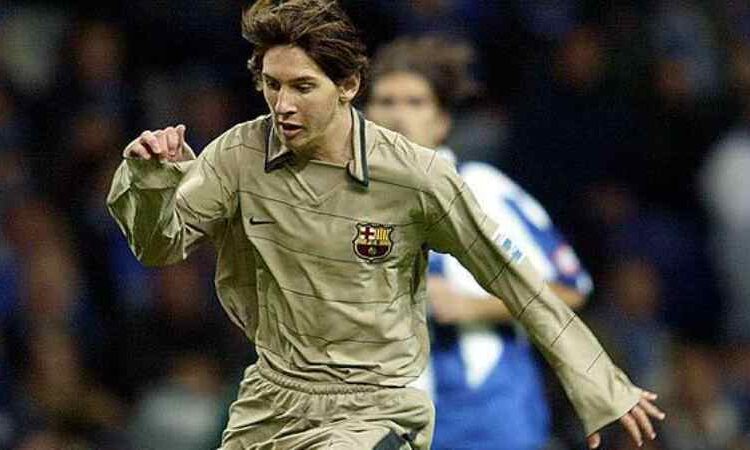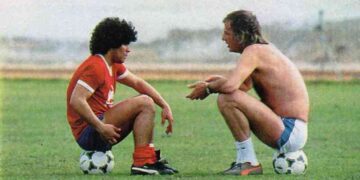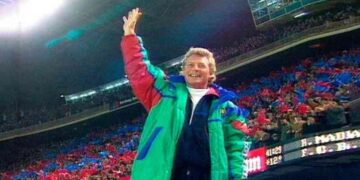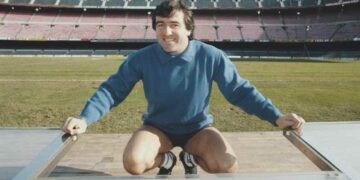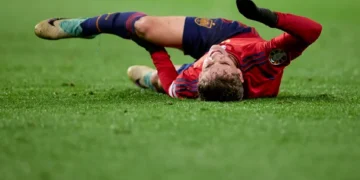In the annals of football history, certain stadiums are forever entwined with the greatest players’ illustrious careers. Estádio Do Dragão, home to FC Porto, holds such a distinction, and for a very special reason – it’s where a teenage sensation named Lionel Messi embarked on his journey to football immortality.
The date was November 16, 2003, a day that would etch itself into the collective memory of football fans worldwide. FC Barcelona was invited to partake in a friendly match, a celebration of the inauguration of the new 50,000-seat Estádio Do Dragão, the replacement for the old Estádio das Antas. Porto would go on to win the game 2-0, but history had its eyes on something far more remarkable.
With only 15 minutes remaining in the match, Barcelona’s coach at the time, Frank Rijkaard, made a decision that would change football forever. He summoned a promising teenager named Lionel Messi from the bench, eager to witness the young Argentine’s skills in action. “I was very nervous,” Messi later admitted, “but I really fancied going out to play for a bit.”
An early signs of what was coming
With that substitution, history unfolded before our eyes. Messi took to the field, sporting the number 14 shirt – chosen not for superstition, but simply because it was available. His impact was immediate. Within moments, Messi found himself one-on-one with Porto’s goalkeeper, Nuno, who thwarted his first attempt. Shortly after, he won the ball in a position where a shot seemed inevitable, but he instead opted for a pass, which unfortunately found no takers.
While a quarter-hour on the pitch might seem insignificant in the grand scheme of things, those brief moments were enough to discern that Messi was no ordinary player. His extraordinary skills were already evident, even if no one could have fathomed the unparalleled greatness that awaited him. He was destined to be more than just a great player; he was destined to be a legend – a legend on par with the likes of Pele, Cruyff, and Maradona. Many would even argue that he transcended them all to become the Greatest of All Time (G.O.A.T).
Returning to the Scene of Greatness
Fast forward nearly two decades, and FC Barcelona is once again heading to Estádio Do Dragão. The setting has changed, the players have come and gone, but the memory of that chilly November night in 2003 still lingers in the air. Messi’s debut was the spark that ignited a footballing phenomenon. It was the genesis of a legend whose name would resonate in every corner of the globe.
As Barcelona prepares to step onto that hallowed ground once more, the echoes of Messi’s debut reverberate. Do Dragão is not merely a stadium; it’s a living monument to the birth of a footballing demigod. It’s where a young boy from Rosario, Argentina, announced himself to the world. It’s where the journey of a footballing icon commenced – a journey filled with records, accolades, and breathtaking moments.
Estádio Do Dragão isn’t just a place to play football; it’s a shrine for those who understand the profound significance of that historic night. It’s where Messi’s story began, and where the world first glimpsed the genius that would grace the beautiful game for years to come.
So, as FC Barcelona steps onto the pitch at Do Dragão once more, it’s more than just another match. It’s a pilgrimage to a sacred site, a tribute to the genesis of greatness. It’s a reminder that legends are born in moments, and in that moment in 2003, Lionel Messi was born.

Discover more from Barça Buzz
Subscribe to get the latest posts sent to your email.


